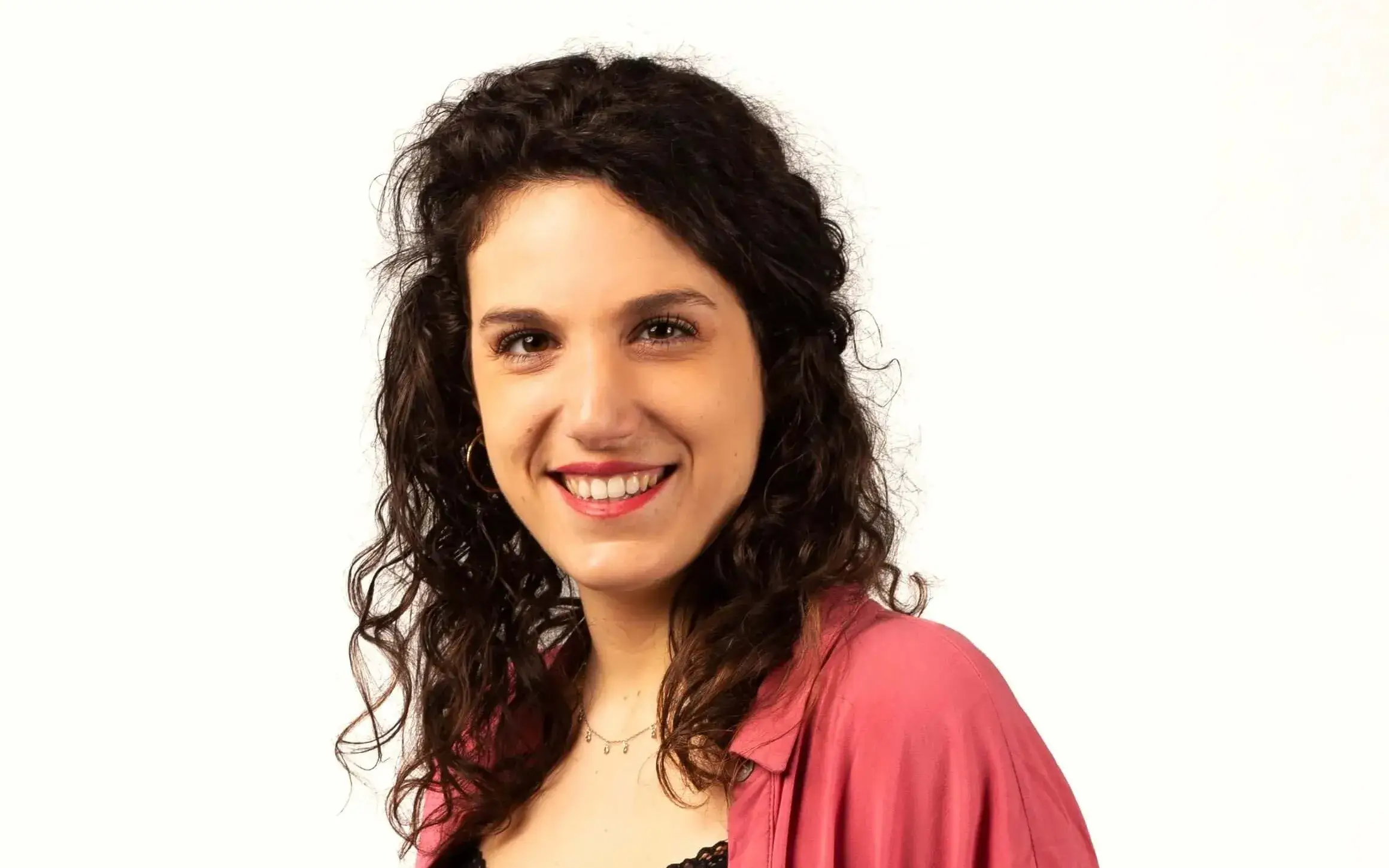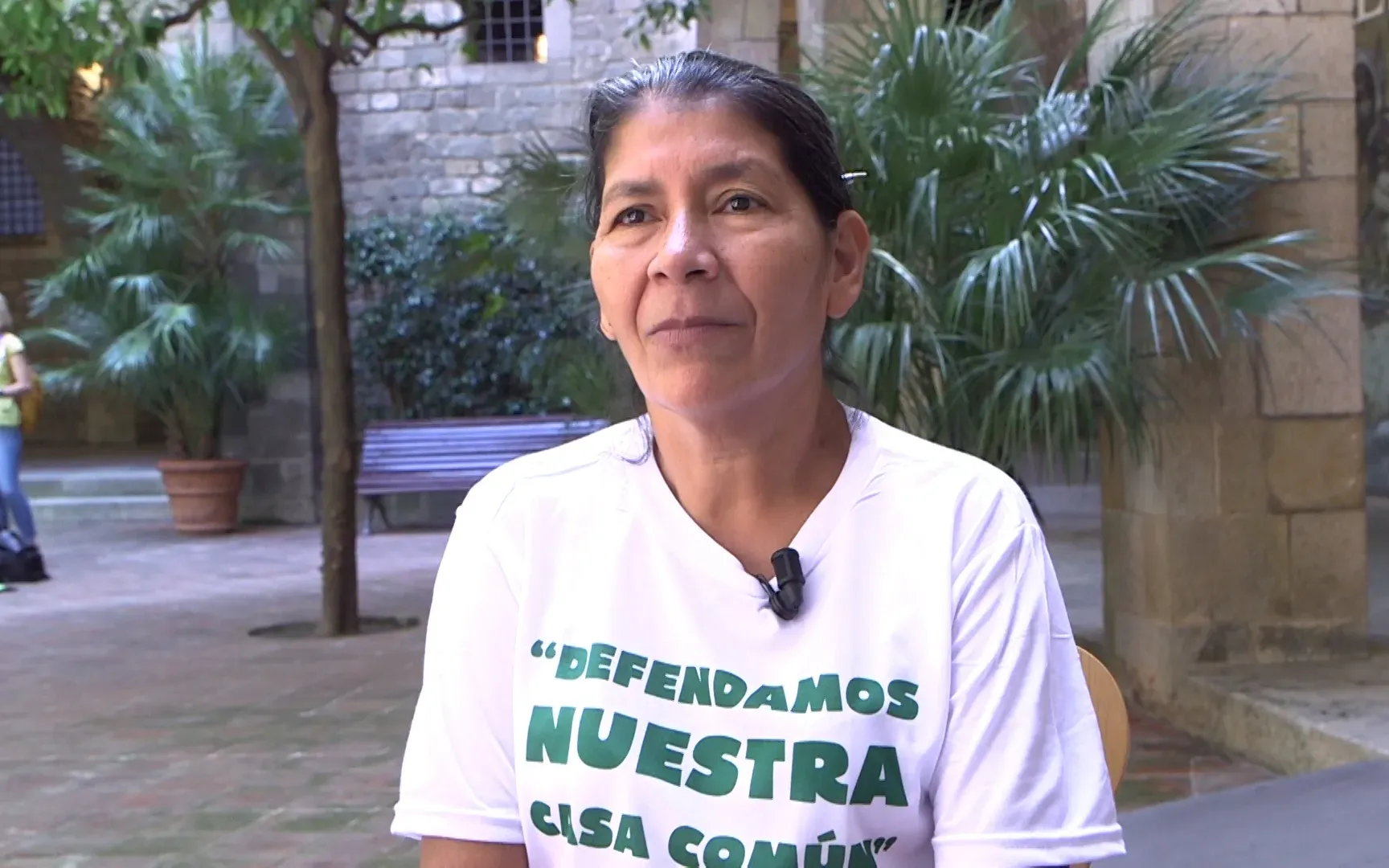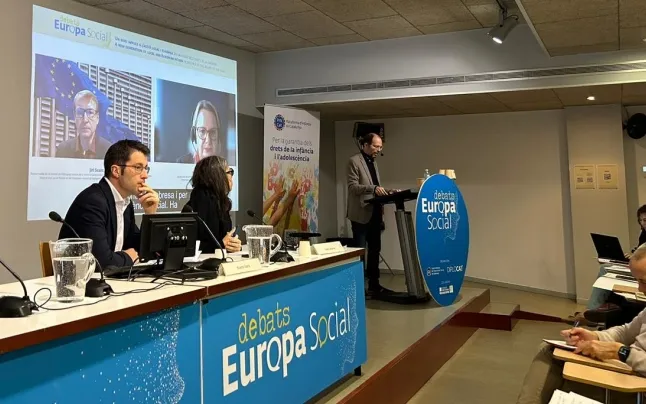The situation of women who suffer from male violence worsens during the state of alarm. For this reason, the Catalan Institute of Women and the entities reinforce the resources for victim attention programs.
Stopping the coronavirus is not easy, as one can see from the fact that the state of alarm is being lengthened. The organisations urge the citizenship to continue the confinement and stay home to prevent virus propagation. Although, women who suffer from male violence do not feel safe at home. Whose fault is that? Another virus that we need to eradicate: sexism.
The situation of women who suffer from male violence worsens during confinement. The Catalan Institute of Women (ICD, from its Catalan initials), expects an increase of this type of domestic violence. "The victim is more isolated than usual and the aggressor thinks that he can exercise more power over her", says Laura Martínez, president of the ICD.
Remei Sáez, director of the Unitary Platform against gender-based violence agrees that confinement is a "very serious situation" for women who live with their aggressors. Sáez says that "women must know that they are not alone, that all resources are maintained and that entities continue to work".
In fact, according to organisations, violence during confinement is worse than in other moments of the year where more situations of abuse are registered, such as summer or winter holidays. All these are moments in which the hours of cohabitation at home are increased.
According to the ICD, during the last two weeks the daily mean of calls to the victim support line, the 900 900 120, has increased. Before the coronavirus crisis, the average was 25 calls. Since the proclaiming of the state of alarm, between the 16th and the 24th of March, the service has attended more than 296 calls, which represents a daily mean of 38 calls. The calls increased 34% compared to the calls made in January and February.
"We know that the calls from women who suffer from male violence have increased and that 676 women and 70 children are confined with the aggressor", says Sáez. In addition to these cases, some older women live the situation in silence and whose "circumstances have undoubtedly worsened", adds Sáez.
According to Feminicidio.net, since the Royal Decree-Law to activate the state of alarm was published at the BOE on 14th March, two murders due to male violence have already been registered. The first one, an intimate femicide of a 35-year-old woman from Almassora (Castellón), murdered by her partner in front of their two children and a family femicide of a 74-year-old woman from Soraluze (Guipúzcoa) murdered by her son.
Two murders of women in Huelva and León are also being investigated.
Increased violence
The Women's Association Ca l'Aurèlia helps women who have suffered from male violence to emerge from these situations, providing psychological and legal support until they are fully recovered. Sílvia Bautista, the coordinator of the organisation, assures that confinement causes an escalation of violence, meaning more daily argues or even physical abuse.
"Abusers always channel anger and frustration against their partners: any of their problems will be the woman's fault", says Bautista. "This violence already existed before the confinement, it is the forms of violence that change", regrets Sílvia referring to this escalation of violence that the situation may cause.
In the same vein, Montserrat Vilà, director of the Hèlia Assoiation which provides support to women survivors of male violence, reports that "many women, besides the confined, are locked in a room, alone, and we need to get in touch with them, but the abuser usually controls them and avoid this contact".
The ICD is working on several recommendations to identify and avoid these situations during confinement. Furthermore, Laura Martínez calls on citizenship: "we need to be vigilant if we see that any woman is especially isolated from family and friends. Call her, look out for her, let her know that she has people by her side and resources at her disposal", says the president of the ICD.
In these situations, if someone thinks that a friend, relative or neighbour may be living a difficult situation, they can call 900 900 120 to seek advice regarding on how to act when male abuse is suspected. On the other hand, "if neighbours hear beatings or any situation of emergency, they must call 112 quickly", explains Martínez.
All resources are maintained
Despite the difficult situation we are currently living due to the activation of the state of alarm, the ICD and entities' work against male violence is not stopping. "We maintain all the resources telematically", explains Martínez. Besides, she assures that the support line 900 900 120 has been reinforced and offers "psychological, medical, social and legal support".
Besides, the 671778540 expands and facilitates written and immediate communication with professionals of these areas (psychologists, social workers, doctors and lawyers). Until now, this could only be done through the email address 900900120@gencat.cat.
"As the Generalitat of Catalonia we are especially monitoring women identified as victims who live with their abuser", explains Martínez. "We maintain the face-to-face attention in cases that we believe to be an emergency and when we can, we intervene telematically", she adds.
ICD has also launched the 'Safe establishment against male violence' campaign which calls on citizenship - especially staff working on opened businesses - to become more involved in helping women who suffer from male violence during this moment of confinement and lack of mobility.
A poster will identify safe establishments against male violence where women who suffer from male violence and feel that their homes are no longer a safe place can go there and ask for help. From there they will call 900 900 120 or 112.
Establishments have different versions of the poster available in Catalan, Spanish, English and French which they can download and print from the website dones.gencat.cat and hang in a visible place of the business. "Attention services to women victims of male violence must think of protocols to help them in these times of confinement", says Vilà.
There are still many days of confinement left. For this reason, the coronavirus health crisis mustn't make us forget the fight to eradicate male violence. As Sílvia Bautista says: "the fight does not stop, we must keep working because we have to end this scourge".









Add new comment